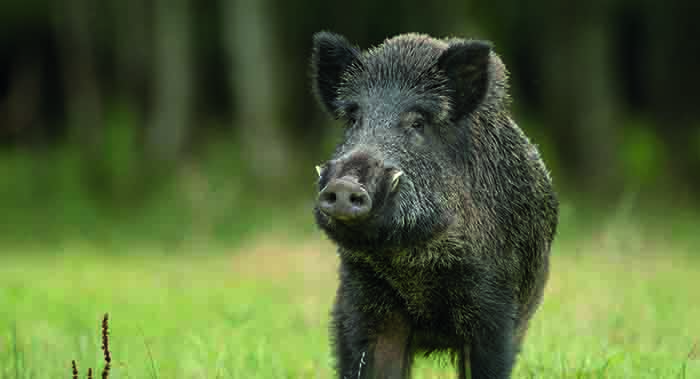Feed and feed ingredients could potentially serve as means for the introduction and transmission of foreign animal diseases, including African Swine Fever (ASF), according to a new publication in the journal Animals.
Assistant professor of diagnostic medicine and pathobiology in the College of Veterinary Medicine at Kansas State University, Megan Niederwerder, recently published an overview on the significance of eight years of collective feed research related to swine viruses.
The review, titled “Risk and Mitigation of African Swine Fever Virus in Feed” was published 18 March in the journal Animals, with research funding was provided by the National Pork Board, provides information on the risk of African swine fever virus (ASFV) in feed and the mitigation strategies that may help protect the global swine population from introduction and spread through feed.
The overview explained that significant quantities of feed ingredients used for swine diets are traded worldwide and may be imported from countries with African swine fever, and that if feed ingredients are contaminated with the virus, they can serve as potential routes for the introduction and transmission of ASFV .
The report concluded that transmission is possible through consumption of ASFV-contaminated plant-based feed, and physical and chemical treatments of feed may mitigate the risk of ASFV introduction.
Evidence has linked contaminated feed with ASFV field outbreaks in both Europe and Asia, and an expanding geographic distribution of ASFV continues to increase the risk of US invasion.
The report advised: “As thousands of metric tons of swine feed ingredients are imported each year into the US from countries with active ASF outbreaks, it is critically important that mitigation strategies be investigated and adopted to reduce the risk of ASFV entry through this route.”




